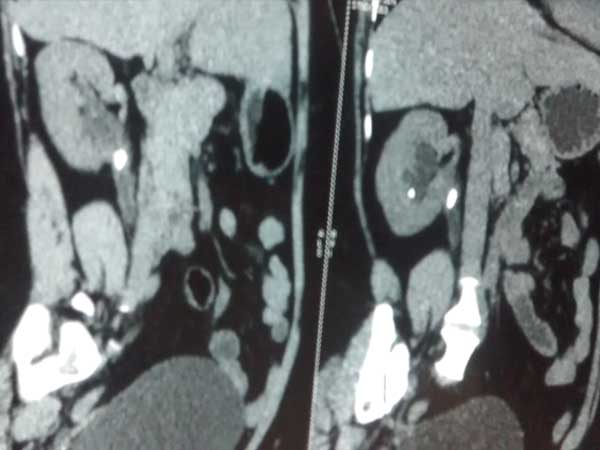- Home
- About Us
- Conditions Treated
- Treatment Offered
- Testimonials
- Gallery
- News And Events
- Urology & Andrology
- Blogs
- Contact Us
How do you treat renal stones?
Stone disease is one of the most prevalent urological disorders, which is more common in men than in women. It is often seen among people between 20-49 years of age. However, it can also occur in children and old age.
Kidney stones are usually so small in size that they can be passed out of the body through urine. Severe pain experienced from kidney stones can be treated by using pain killers. If you fall under the high-risk category of developing kidney stones, speak with your doctor, and discuss the best treatment methods or preventive measures.

What are the treatments
The ability of a kidney stone to pass through the urinary tract depends on various factors such as the size of the stone passage, degree of and status of kidney function. Small stones are generally passed through the urine. However, around 15% of them can get stuck and need endoscopic treatment to remove them. Medicines like calcium channel blockers and alpha-blockers are used to enhance the passage rates of kidney stones.
Drinking water: Drinking six to eight glasses of water per day increases urine flow. This can help you to flush out your urinary system and to produce clear or nearly clear urine.
Medication: Alpha-blockers help in the passage of stones particularly small ones.
Other useful drugs are Analgesics, Diuretics and drugs that help to reduce the uric acid level in the body.
People who are dehydrated or have severe nausea and vomiting may be rehydrated via an intravenous (IV) tube, and anti-inflammatory medication, by the expert caregivers.
Kidney stones that are large and difficult to pass on their own or the stones that cause bleeding, kidney damage or ongoing urinary tract infections may require more extensive treatments, such as;
Lithotripsy
Extracorporeal shock wave lithotripsy uses sound waves to break up large kidney stones. This makes it easier to pass down the ureters into your bladder. This procedure may require light anaesthesia. It can cause bruising on the abdomen and back and bleeding around the kidney and nearby organs, which creates a slight discomfort.
Tunnel surgery (percutaneous nephrolithotomy)
A surgeon use this method for removing the kidney stone using small telescopes and instruments inserted through a small incision in your back. A person may need this procedure when:
Ureteroscopy
To remove a stone stuck in the ureter or bladder, your doctor may suggest Ureteroscopy. The doctor will use an instrument called a ureteroscope, which includes a small wire with a camera attached. This is inserted into the urethra and passed into the bladder. Then the doctor uses a small cage to snag the stone and remove it. This stone is then sent to the laboratory for analysis.
Kidney stones, if left untreated obstruct the kidney functioning. These stones can also cause prolonged damage to the kidneys through severe infection and blockage.
Proper hydration, lifestyle changes, and timely medication are effective measures to be taken by individuals to prevent the formation of kidney stones.
Get in touch with us
Testimonials
About Dr. N. Anandan

Dr. N. Anandan is a senior consultant at Kauvery hospital and Apollo spectra hospitals in Chennai
Read MoreTreatments
Conditions Treated
Treatments Offered